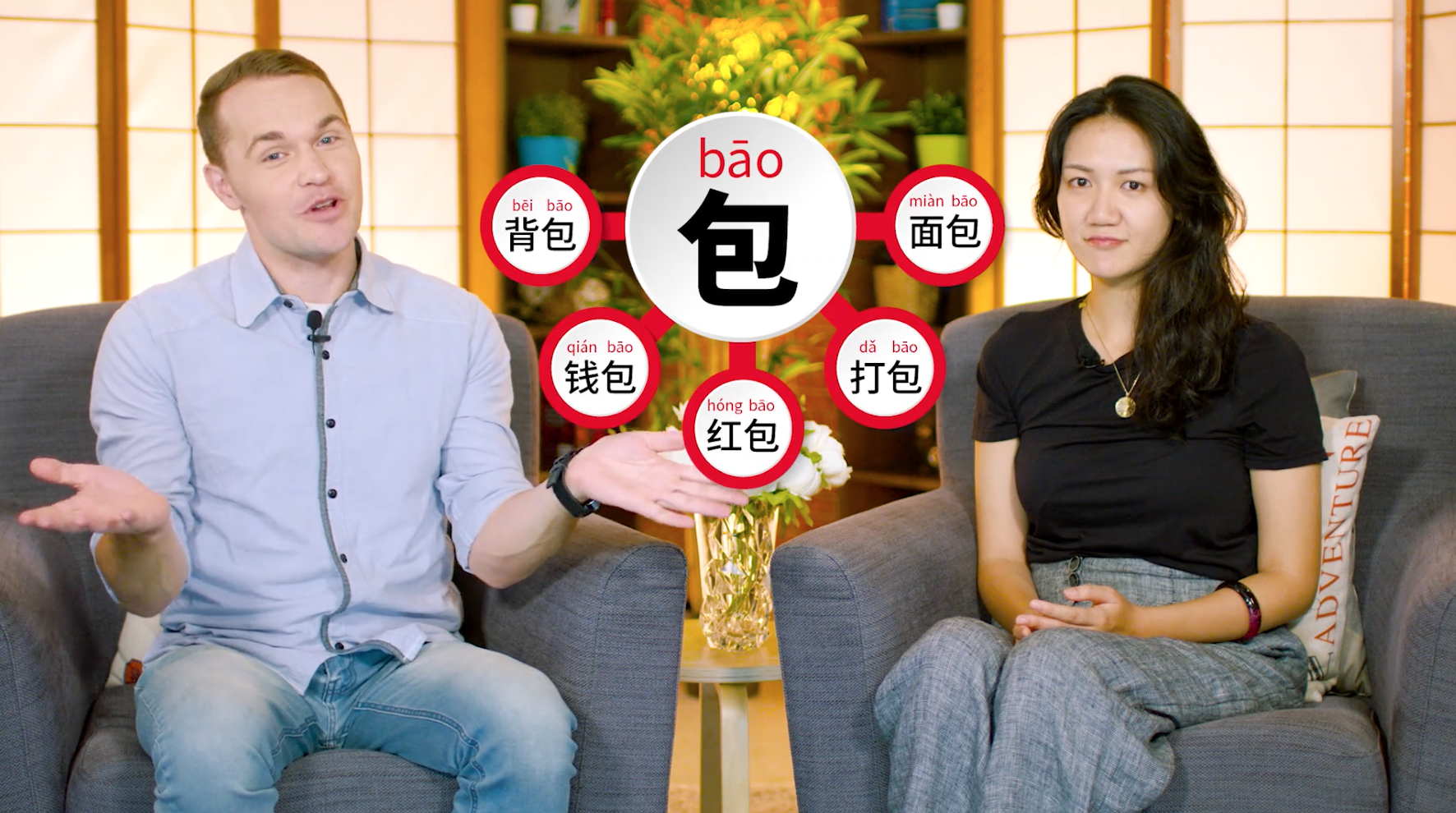Relevant Content
We'll always make sure you know exactly what the lesson is about. You
will easily understand whether it is relevant for you.
How To Use 何尝
Great Hosts
Here at ChinesePod, all our lessons are presented in an entertaining
manner by our great hosts. You'll find language learners, teachers,
and even professors sharing their insights, ideas, and teaching
methods in our video and audio lessons.
Brief Lesson Summaries
A brief introduction of the lesson will always tell you what this
lesson is about and what language level is the intended target. If
you're interested in the subject, but might not be able to understand
it in full, fear not; we have transcripts of lesson dialogues
vocabulary so you can follow along.
IN THIS LESSON
ID: 7445 Advanced
How to use 何尝 / 何嘗 / hécháng
In this Qing Wen, we help Mingmao understand the various uses of the rhetorical question word 何尝, which translates as when? / how? / it's not that...
It can be used to ask people not to blame you, but to blame the situation, or it can be used to defend yourself or others. Watch the video and study the example sentences to get a better understanding.
Fri Jul 07 2017 | Constance Fang, Fiona Tian
Awesome Materials
Our lessons contain natural communication in Chinese
in video and audio format. We have have lessons focused on video or a
podcast format and our lessons have transcripts of Lesson Dialogues,
Important Vocabulary, Expanded Materials for a deep dive into the
lesson topic and Exercises focused on testing your retention.
何尝:怎么(有)、怎么(没有)、怎么(不)、哪里。是一个表达特定语气的副词。
hécháng :zěnme (yǒu )、zěnme (méiyǒu )、zěnme (bù )、nǎli 。shì yī gè biǎodá tèdìng yǔqì de fù cí 。
he2 chang2: rhetorical question; how can it have..., how can it not have..., why not, where. This is an adverb used to express a specific tone.
何尝”后面接否定语气时,句子的意思是肯定;后面接肯定语气时,句子的意思是否定。
hécháng ”hòumian jiē dìng yǔqì shí ,jùzi de yìsi shì kěndìng ;hòumian jiē kěndìng yǔqì shí ,jùzi de yìsi shì dìng 。
When he2 chang2 is used with a negative tone, the sentence is actually an affirmative one; when it is used with an affirmative tone, it is actually a negative sentence.
他说他没有机会了解我,我又何尝有机会了解他呢!(意思是没有机会了解“他”)
tā shuō tā méi yǒu jīhuì liǎojiě wǒ ,wǒ yòu hécháng yǒu jīhuì liǎojiě tā ne !(yìsi shì méi yǒu jīhuì liǎojiě “tā ”)
He says he had no opportunities to get to know me, but when would I have had the opportunity to get to know him? (meaning, "I did not have the opportunity to get to know him")
我何尝不想跟你联络?但我没有你的电话啊!(意思是想跟对方联络)
wǒ hécháng bù xiǎng gēn nǐ liánluò ?dàn wǒ méiyǒu nǐ de diànhuà ā !(yìsi shì xiǎng gēn duìfāng liánluò )
Why would I not want to get in touch with you? I never got your phone number! (meaning, "I wanted to get in touch")
Natural Dialogues
Each lesson is centered around a natural dialogue with key vocabulary
directly prepared and translated for your use. You can also
listen to each sentence as an individual recording to
improve your listening and comprehension skills.
Try It For Free
ChinesePod is 100% Free to Try. Create an account
today and get started!
Sign Up
Please enter a valid email.
- or -
Sign up with

